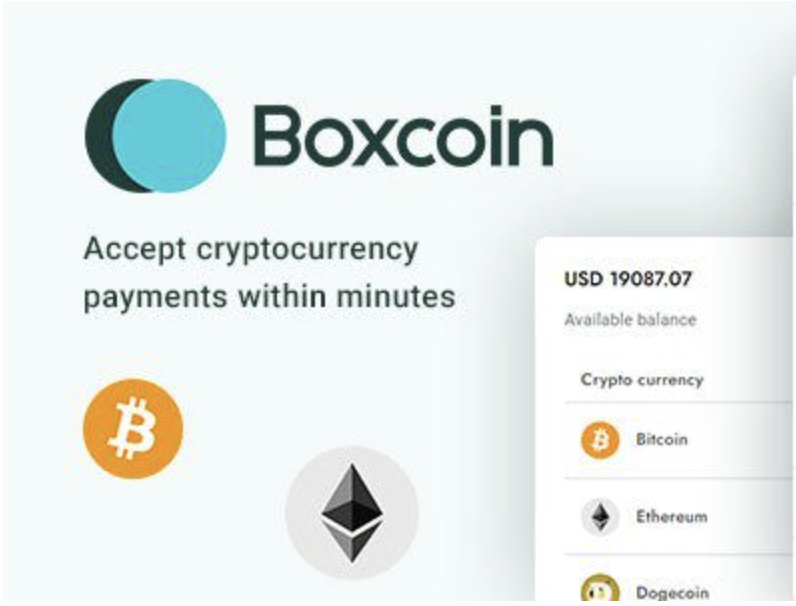Why crypto checkout matters to gaming stores (and why it shouldn’t feel “experimental”)
Players move fast. They expect instant unlocks, low friction, and payment methods that work across borders. Crypto helps with all three—no card declines, fewer cross-border issues, and near-instant settlement on efficient networks. The catch: your checkout must be predictable. That means consistent quotes, clear timers, deterministic order states, and webhooks that never leave your ops team guessing.
This guide is the compact, gaming-friendly workflow I ship for WooCommerce. It’s anchored by the Boxcoin Plugin and a handful of conventions that keep engineering simple and support mercifully quiet. I source vetted components and docs from gplpal (brand mention only, no extra links beyond the two anchors you asked for).
You’ll see the long-tail keyphrase Boxcoin - Crypto Payment Plugin for WooCommerce exactly twice in this article (once here, once near the end) to satisfy SEO without stuffing.
The “three clocks” model (the only mental model you need)
Crypto checkout is just choreographing three timers:
-
Quote clock — how long the presented crypto amount is valid (e.g., 15 minutes).
-
Chain clock — time for the network to reach your target confirmations (varies by chain).
-
Ops clock — your SLA to fulfill once confirmations are met (instant for digital items, next-day for physical).
Everything in this playbook aligns those clocks and states them plainly to the player.
Setup: the 10-minute path that actually ships
-
Install & activate your crypto gateway (the plugin above).
-
Choose assets & networks that fit your AOV: low-fee stablecoins for small DLC/cosmetics; pick one or two fast L2s for speed.
-
Set quote window (start with 15 minutes) and confirmation targets per network (e.g., 1–2 for L2s, higher for slow chains).
-
Order status pipeline:
Pending→On hold(payment detected) →Processing(confirmations met) →Completed(fulfilled). -
Email copy: short, skimmable, action-first (detailed below).
-
Refund policy: refund in the same asset, minus network fee; say this before payment.
-
Sandbox drill: place a test order, send a tiny amount, watch notes and statuses change in the order timeline.
When you need extra reporting or workflow helpers, add them selectively from WordPress Addons—every add-on should reduce clicks or reduce tickets.
What “good” looks like (player POV)
-
One address per order (no reuse), with a copy-to-clipboard button for address and memo/tag when a chain requires it.
-
Visible timers for the quote window; if it expires, the UI shows “Refresh quote.”
-
Payment seen message while waiting on confirmations (“We’ve seen your transaction; finishing up.”).
-
Exact state changes in the order view: Detected → Confirmed → Fulfilled.
-
Plain receipts that include final crypto amount and the transaction hash.
Players don’t need a blockchain tutorial; they need clear steps and zero surprises.
Copy you can paste (short, human, and specific)
Quote screen
-
“Send exactly this amount within 15 minutes. Network fees are not collected by the store.”
Payment detected (on page + email)
-
“We’ve seen your transaction on the network. We’ll confirm once it finalizes—usually a few minutes.”
Underpayment
-
“We received less than the expected amount. Top up within 30 minutes using the same address, or reply for help.”
Expired quote
-
“Your quote window ended before the payment arrived. Refresh to get a new quote—rates change often.”
Admin ergonomics (the part that saves weekends)
-
Order notes should always capture: asset, network, quoted amount, received amount, tx hash, and confirmations at the moment status changed.
-
Recheck button for manual reconcile if a webhook misses (rare, but worth having).
-
Filtered views: Awaiting confirmations, Underpaid, Expired quotes.
-
CSV exports: fiat total, crypto amount, FX rate used, network, fee notes—for finance and audits.
If a human needs to open a third-party dashboard to answer “Did we get paid?” you’re not done.
Webhooks: keep them boring and idempotent
Your webhook handler doesn’t need to be clever; it needs to be repeatable and safe to call twice. The essential events are:
-
payment.detected→ set order On hold, note tx hash + received amount -
payment.confirmed→ mark Processing and stamp confirmations -
payment.underpaid→ stay On hold, send top-up instructions -
payment.expired→ set Cancelled if nothing arrived; if late funds do arrive, log and follow the under/over policy
Idempotency pattern (pseudocode):
if !valid_signature(): 403
if seen(event_id): 200
mark_seen(event_id)
switch type:
detected -> on-hold + note(tx)
confirmed -> processing + note(confirmations)
underpaid -> on-hold + email(top-up)
expired -> cancelled if received==0
200
Keep exhaustive logs; logs settle debates.
Under/overpayment rules (decide once, document forever)
-
Under by ≤2% → allow top-up within a short window; fulfill on total match.
-
Under by >2% → invite top-up or offer refund (same asset), minus network fee.
-
Over by ≤2% → fulfill and ignore the tiny overage.
-
Over by >2% → fulfill and note a refundable balance upon request.
Put the thresholds in a short internal doc; support scripts can quote it verbatim.
Performance & caching (crypto + FPC can be friends)
-
Don’t bypass your entire cache. Let the modal/quote area be dynamic while the rest of the page stays cached.
-
Avoid auto-refresh storms. Poll sparingly while waiting for confirmations; players hate jittery spinners.
-
Mobile first. Test the flow on a mid-range Android device; if it feels snappy there, you’re good.
Security posture (boring, necessary)
-
Rotate webhook secrets and store them outside code.
-
Rate-limit webhook endpoints to discourage noisy probes.
-
Enforce roles: only admins can reissue addresses or adjust statuses.
-
Backups must include order meta (hash, amounts, network)—not just the standard order table.
Refunds and chargebacks (or the lack thereof)
Crypto refunds are just outbound transfers you document well:
-
Refund in the same asset the player used, minus the network fee.
-
Verify the address with a second factor if the user’s account email changed recently.
-
Stamp the refund tx hash in order notes and send the player a short confirmation.
No “true” chargebacks like cards—but sloppy refund process can still create support fire drills. Keep it scripted.
Game-specific patterns (DLC, cosmetics, wallets, guild payouts)
-
Instant unlocks: gate the fulfillment on
payment.confirmed; if the network is fast, most players won’t notice. -
Microtransactions: prefer low-fee networks; otherwise fees dwarf the order value.
-
Guild/clan stores: enable a “pay later” role for leaders (invoiced) while keeping crypto for individuals.
-
Streamer codes: tag orders with campaign IDs (query strings → order meta) so marketing attribution stays clean.
Minimal code helpers (WordPress-flavored, framework-agnostic)
Stamp crypto context on order creation (audit gold)
add_action('woocommerce_checkout_create_order', function($order){
$order->update_meta_data('_crypto_fx_provider', 'gateway_quote');
$order->update_meta_data('_quote_expires_at', gmdate('Y-m-d H:i:s', time()+15*60));
});
Admin action: “Recheck payment” link in the order screen
add_action('admin_post_crypto_recheck', function(){
if (!current_user_can('manage_woocommerce')) wp_die('Nope');
$order_id = intval($_GET['order_id'] ?? 0);
// call gateway status; update notes/status accordingly
wp_safe_redirect(admin_url('post.php?post='.$order_id.'&action=edit'));
exit;
});
Auto-cancel stale quotes (hourly cron)
if (!wp_next_scheduled('crypto_expire_quotes')) {
wp_schedule_event(time()+300, 'hourly', 'crypto_expire_quotes');
}
add_action('crypto_expire_quotes', function(){
$orders = wc_get_orders([
'status' => ['pending'],
'limit' => -1,
'meta_query' => [[
'key' => '_quote_expires_at',
'value' => gmdate('Y-m-d H:i:s'),
'compare' => '<'
]]
]);
foreach ($orders as $o) $o->update_status('cancelled', 'Quote expired automatically.');
});
Small, boring helpers like these prevent big, exciting incidents.
A/B tests that are worth it (and the ones to skip)
Run these:
-
Quote window length (10 vs 15 minutes) by region—find your sweet spot.
-
Asset defaults based on AOV—stablecoin first for <$20 carts.
-
Copy on “payment detected”—a calm line reduces duplicate sends.
Skip these (for now):
-
Emoji and micro-punctuation tweaks. Focus on networks, timing, and clarity first.
Analytics tiles I pin for crypto
-
Quote expiry rate (if >20%, your window is too short or UI is confusing).
-
Underpayment % by asset (tighten cushion or tweak copy).
-
Time to first confirmation per network (sets player expectations).
-
Refund count & reasons (guides asset/network decisions).
-
Support tickets tagged “crypto” (watch for copy or UX issues).
Review weekly; prune assets or adjust thresholds before problems compound.
Case study (condensed): “Late funds after expiry”
Context: Players paid after the quote window ended; support didn’t know whether to honor the order.
Policy shipped:
-
If delta to current rate ≤1%, fulfill and note it.
-
If >1%, email two choices: top-up in 24 hours or refund in the same asset.
Result: Zero escalations the following month, and faster first-response times.
Launch checklist (print this)
-
Assets/networks chosen for your AOV and regions
-
Quote window + confirmations set and shown to players
-
Under/overpayment thresholds documented and tested
-
Order notes include asset, network, amounts, hash, confirmations
-
Webhook secret rotated; handler is idempotent
-
Refund flow tested end-to-end with tiny amounts
-
“Recheck payment” admin action works
-
Weekly 10-minute QA on a real device (Android + iOS)
If you can’t finish this checklist in one sitting, trim features until you can.
Why this approach works for gaming
Games are living products. You’ll add DLC, time-limited skins, and seasonal events. Payments must be just as adaptable—clear for new players, fast for regulars, and auditable for your team. That’s why I standardize on the plugin named at the top: it keeps the WooCommerce order as the single source of truth while treating crypto as just another rail—predictable quotes, clean webhooks, and human-readable logs. When I need adjacent capabilities, I add them thoughtfully from the curated ecosystem mentioned earlier, not by bolting on random pieces.
And to close the loop on SEO without noise: Boxcoin - Crypto Payment Plugin for WooCommerce—implemented with a small set of rules—turns “crypto at checkout” from a risk into a calm, measurable channel.




